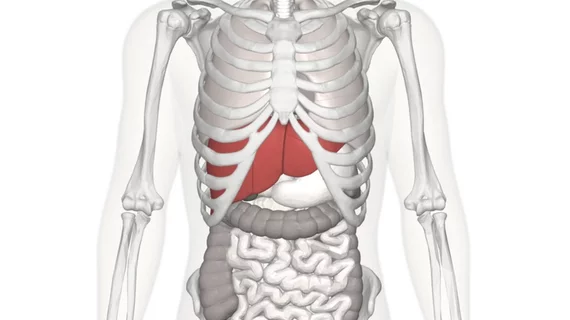MRI technique may make diagnosing liver cancer easier, scientists say
German researchers may have discovered a means to more easily pinpoint liver cancer using an MRI machine to determine a tumor’s consistency.
Experts with Charité – Universitätsmedizin Berlin—one of Europe’s largest academic medical centers—noted that individuals with firmer livers have a greater risk of developing malignant liver lesions. To help gauge that stiffness, they’ve developed a new diagnostic technique to let doctors visualize liver tumors using “tomoelastography,” which combines tomography and elasticity.
"Our findings may help researchers to develop entirely noninvasive means of distinguishing between benign and malignant lesions,” Mehrgan Shahryari, with the hospital’s department of radiology, said in a statement issued Oct. 21. “Before we get to that stage, however, we will need further, comprehensive studies to evaluate the performance and accuracy of tomoelastography in cancer diagnosis."
Liver is currently the fifth most common cancer type and it’s increasing in prevalence. Shahryari and colleagues noted that little has been explored about the way in which solid and fluid tissues interact in the liver, and how that interaction might influence the development of malignant lesions.
Tomoelastography is adept at picking up any solid-fluid tissue properties. They reported that hepatic malignancies contain tissues with both stiff and fluid properties whereas surrounding tissues are mostly solid. Researchers had previously assumed that all cancers have a solid consistency.
"Our findings regarding these unusual mechanical properties may be indicative of a general pattern for cancer growth," Shahryari added.
Results from the investigation were published last month in the journal Cancer Research.

